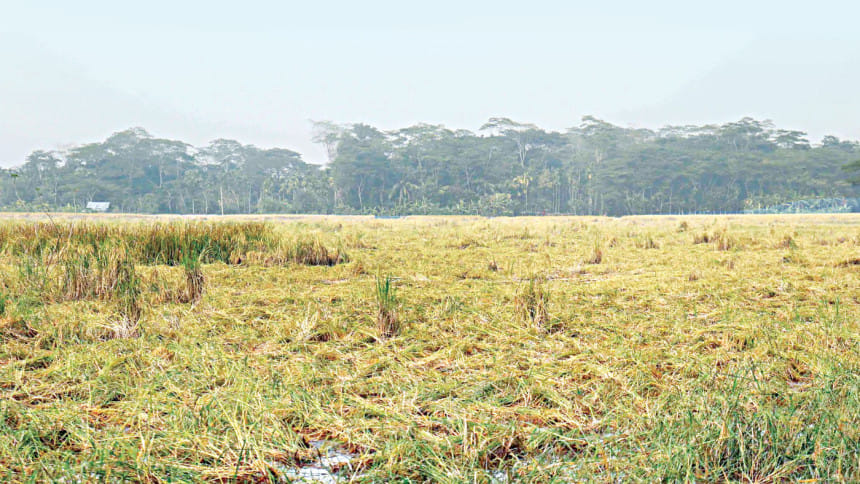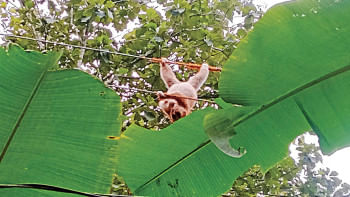Aman harvest faces water stagnation problem

Farmers in Pirojpur and Jhalakathi are facing problem to harvest Aman paddy as most of the paddy plants have remained under rainwater.
The growers said the ripe paddy in large areas of the two districts got damaged as the recent rain caused by Cyclone Jawad caused water stagnation in the fields.
Due to this, they are facing serious troubles in harvesting paddy of the fallen plants in the waterlogged fields, said farmer Nurul Islam of Charkhali village in Pirojpur's Indurkani upazila.
"It takes three to four days to harvest paddy of fallen plants on one bigha of land while it took only one day to harvest standing paddy on the same land," said Nurul.
Another grower of the village Abdul Halim said labourers are also not showing interest to harvest paddy of fallen plants, much to the worry of farmers.
The farmers added that they store straw of Aman paddy as fodder of domestic cattle. They also use the straw to make roofs of houses.
"But this year we will have to face straw crisis as mostly of them have been damaged due to the rain," said farmer Saiful Islam of Bhaijhora village in Pirojpur Sadar upazila.
The delay of harvesting Aman paddy for over three weeks will also badly delay robi plantation as it will take long time to dry up the fields, he added.
"This year we are anxious of being delayed of robi crop cultivation for around a month," said another farmer Mohammad Ali from the same village.
SK Tayebur Rahman, agriculture extension officer in Indurkani upazila, said the natural disaster has caused damage to average 30 percent mature Aman paddy of the upazila
It has also caused huge damage to robi crops as mostly lentil plants grown in the Aman paddy fields got damaged, he added.
As Aman plantation is being delayed, it will lengthen the process of the plantation of robi crops including boro, said the officer.
According to the Department of Agricultural Extension (DAE) in Pirojpur, this year 61,630 hectares of land in the district have been brought under Aman cultivation.
Meanwhile, 48,000 hectares of land in Jhalakathi have been brought under Aman cultivation, said Md Monirul Islam, deputy director of DAE in Jhalakathi.

 For all latest news, follow The Daily Star's Google News channel.
For all latest news, follow The Daily Star's Google News channel. 



Comments